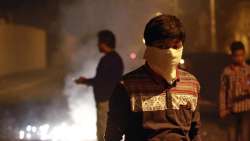After Supreme Court’s ban on firecrackers' sale, will this Diwali be less noisy and less toxic?
Diwali 2017: The Supreme Court on October 9 banned the sale of firecrackers in Delhi and NCR till November 1 to curb rising pollution levels during Diwali

After Supreme Court’s ban on firecracker sale till 1st November, a less noisy and less toxic Diwali is expected this year. Some people have however, claimed to have found a different way to get firecrackers. But there are many who got the message to celebrate the festival without adding to the already deteriorating air quality in the national capital. Many firecracker lovers spoke to IANS that they managed to get firecrackers online or have brought them from places close to Delhi.
Despite reports about an upswing in the black market of crackers, one of the traders approached by an IANS correspondent simply refused to deliver any products but said people were welcome to come and buy on November 1 -- by when the Supreme Court ban will be over.
"I am sorry. I can't help you with it because of the Supreme Court ban. You can surely come and buy on November 1 and after that," the trader told IANS.
Amit, 42, from Ajit Fireworks near Jama Masjid, said he was getting calls from a lot of people, especially kids, requesting for some crackers, but they were simply told - "No, you will have to wait till the end of this month."
"It is certainly difficult to explain it to the kids. I am trying to convince them like their parents must be doing," he said.
Others in the market, he said, had switched off their phones to avoid calls from buyers.
Amit said his own children and family were using some of the previous stock he had accumulated for Diwali sale. "Our kids will be bursting some. We are distributing the rest among our relatives."
The Supreme Court on October 9 banned the sale of firecrackers in Delhi and NCR till November 1 to curb rising pollution levels during Diwali. Delhi Police said it seized over 1,200 kg firecrackers and arrested 29 people for selling firecrackers illegally in the capital.
Last year on Diwali, PM2.5 levels in some areas of Delhi increased to 1,238. The World Health Organization recommends that PM2.5 is kept below 10 as an annual average, as exposure to average annual concentrations of PM2.5 of 35 or above is associated with a 15 per cent higher long-term mortality risk.
Delhi and NCR are one of the worst polluted regions in the world, with an annual average PM2.5 measurement of 122. On Tuesday, average air-quality index reading for Delhi was said to be "very poor" and "severe", amid apprehensions that firecrackers on Diwali would further worsen the air quality.
But for many Diwali is all about fireworks.
"We have made arrangements in our society and somehow made it available to everybody in our area," said Pramod Shah, 51, an east Delhi resident.
Anmol Agrawal, 22, a Saket resident, said: "Those who are desperate to burst crackers and cause pollution must be making arrangements from somewhere or the other. If not from Delhi, they can certainly source them from nearby cities in other places beyond NCR.
"I support a pollution free Diwali...won't be sourcing crackers from anywhere," she said.
Vikrant Tongad, an environmentalist with Social Action for Forest and Environment (SAFE) NGO, said the Supreme Court order would "surely" help in preventing further deterioration of air quality in Delhi and NCR. But expecting a noise-free Diwali was asking for too much.
"The Supreme Court ban will help. Crackers are not easily accessible. It is good. But the problem is larger. It will be less toxic and less noisy but not a completely a cracker-free Diwali," Tongad said.
(With IANS Inputs)
